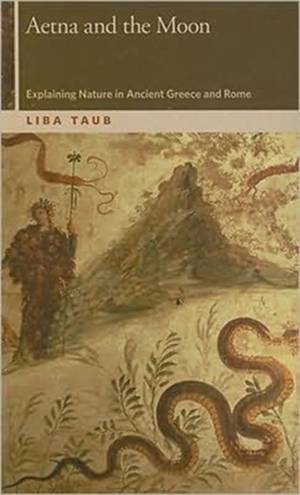
Bedankt voor het vertrouwen het afgelopen jaar! Om jou te bedanken bieden we GRATIS verzending (in België) aan op alles gedurende de hele maand januari.
- Afhalen na 1 uur in een winkel met voorraad
- In januari gratis thuislevering in België
- Ruim aanbod met 7 miljoen producten
Bedankt voor het vertrouwen het afgelopen jaar! Om jou te bedanken bieden we GRATIS verzending (in België) aan op alles gedurende de hele maand januari.
- Afhalen na 1 uur in een winkel met voorraad
- In januari gratis thuislevering in België
- Ruim aanbod met 7 miljoen producten
Zoeken
Omschrijving
Classical authors used both prose and poetry to explore and explain the natural world. In Aetna and the Moon, Liba Taub examines the variety of ways in which ancient Greeks and Romans conveyed scientific information. Oregon State University Press is proud to present this inaugural volume in the Horning Visiting Scholars Series. In ancient Greece and Rome, most of the technical literature on scientific, mathematical, technological, and medical subjects was written in prose, as it is today. However, Greek and Roman poets produced a significant number of widely read poems that dealt with scientific topics. Why would an author choose poetry to explain the natural world? This question is complicated by claims made, since antiquity, that the growth of rational explanation involved the abandonment of poetry and the rejection of myth in favor of science. Taub uses two texts to explore how scientific ideas were disseminated in the ancient world. The anonymous author of the Latin Aetna poem explained the science behind the volcano Etna with poetry. The Greek author Plutarch juxtaposed scientific and mythic explanations in his dialogue On the Face on the Moon. Both texts provide a lens through which Taub considers the nature of scientific communication in ancient Greece and Rome. General readers will appreciate Taubs thoughtful discussion concerning the choices available to ancient authors to convey their ideas about scienceas important today as it was in antiquitywhile Taubs careful research and lively writing will engage classicists as well as historians of science.
Specificaties
Betrokkenen
- Auteur(s):
- Uitgeverij:
Inhoud
- Aantal bladzijden:
- 138
- Taal:
- Engels
- Reeks:
Eigenschappen
- Productcode (EAN):
- 9780870711961
- Verschijningsdatum:
- 15/04/2008
- Uitvoering:
- Hardcover
- Formaat:
- Genaaid
- Afmetingen:
- 147 mm x 231 mm
- Gewicht:
- 353 g

Alleen bij Standaard Boekhandel
+ 64 punten op je klantenkaart van Standaard Boekhandel
Beoordelingen
We publiceren alleen reviews die voldoen aan de voorwaarden voor reviews. Bekijk onze voorwaarden voor reviews.









